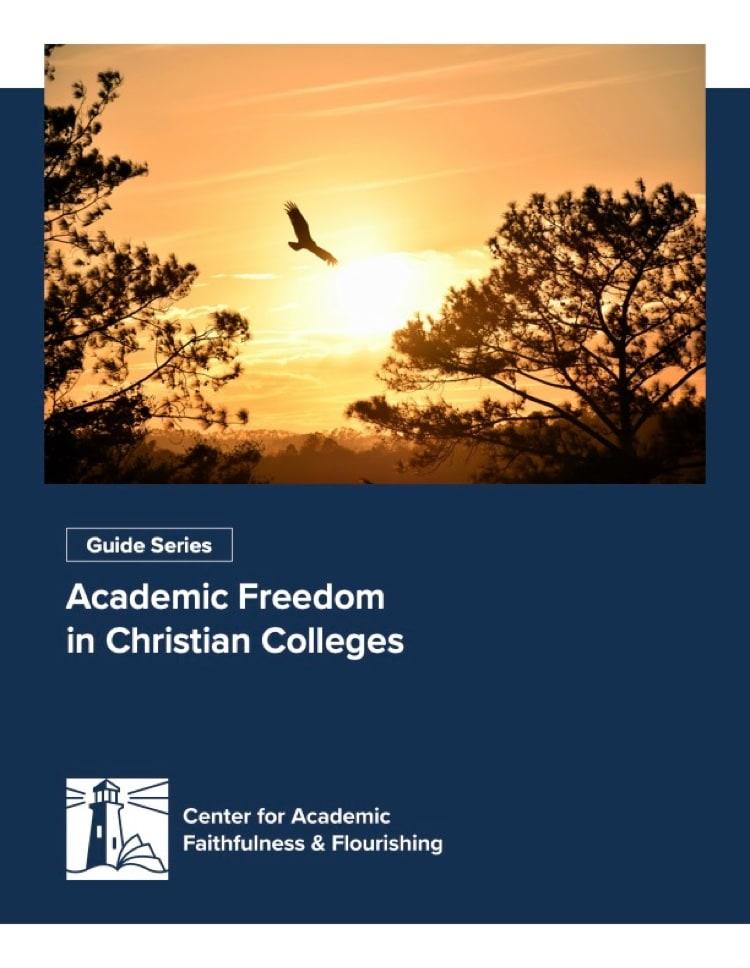
Resources
White Papers
Casting Vision for Uncertain Times
Position Papers
Solutions for pressing challenges
Research Reports
Analysis that makes an impact
Guide Series
Illuminating key issues
Solutions for pressing challenges
Position Papers
CAFF Position Papers explore strategies that can empower Christian colleges and universities to meet our cultural moment with confidence and conviction. Each report assesses the current state of play and casts vision for future practice. Readers will discover fresh perspectives on addressing the thorniest challenges of our day while staying true to the historic mission of Christian higher education.
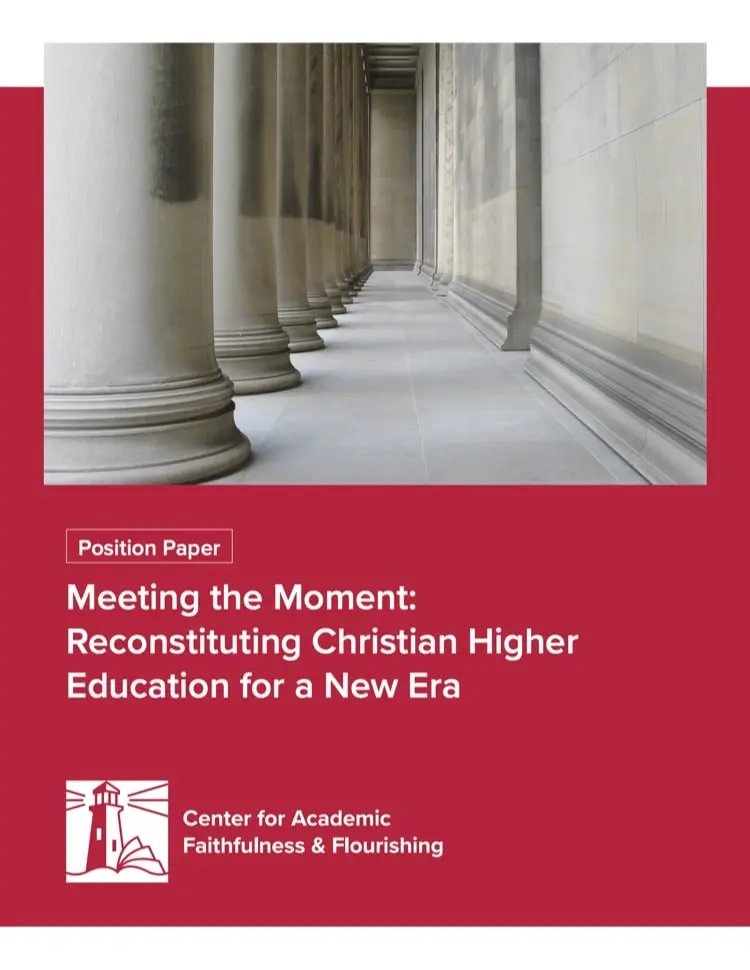
Meeting the Moment
Christian Higher Education for a New Era
Evangelical higher education carries forward the spiritual legacy of the earliest American colleges, yet its position within the wider postsecondary landscape is more precarious than ever before. In order for campus leaders to wisely navigate current conditions, they must clearly understand the present moment and respond accordingly. Using resource dependency as a conceptual framework, this position paper traces the evolution of American higher education from its founding to the present and details strategies Christian colleges and universities have used to balance adaptation to changing contexts with fidelity to their founding missions. It explains why past approaches will no longer work in the emergent era and argues that this reality requires different strategies for engaging the external environment. The paper concludes by casting a new vision for academic faithfulness that can empower evangelical Christian higher education to flourish despite growing illiberal trends.
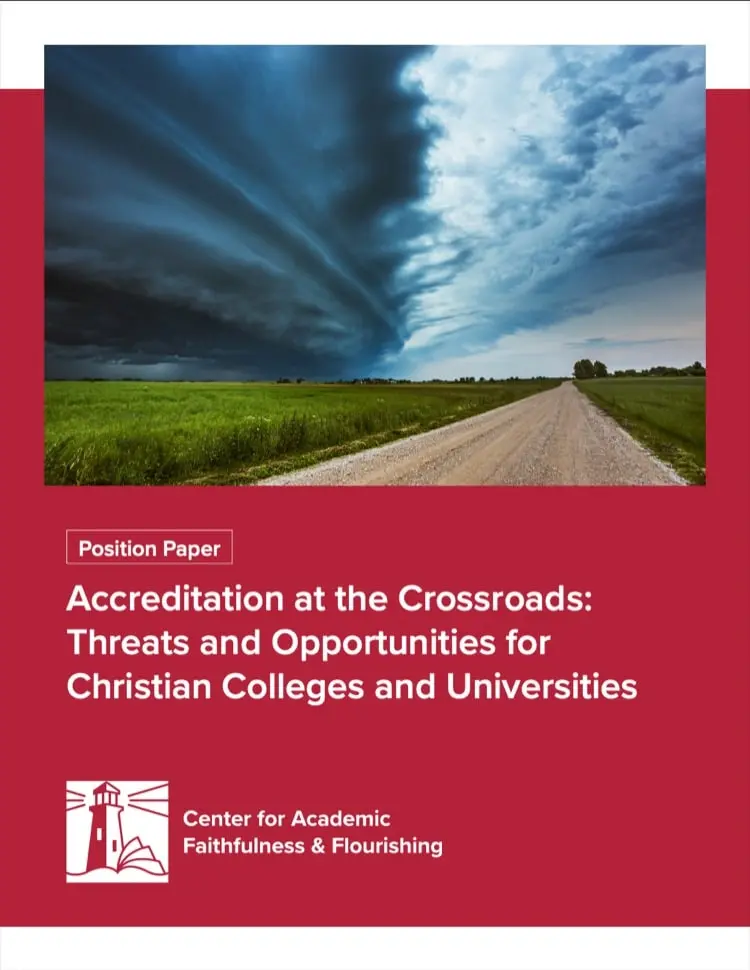
Accreditation at the Crossroads
Threats and Opportunities for Christian Colleges and Universities
Trustees and senior administrators at Christian colleges and universities are keenly aware that their institutions’ financial solvency depends largely upon maintaining external accreditation. Less fully understood, however, are emergent trends that threaten to fundamentally transform the way all postsecondary institutions in the United States will be required to interact with accreditors. This position paper reviews each of these trends and charts a way forward for Christian higher education. After exploring how the regional accreditors’ expanding role has rendered them unstable gatekeepers for access to federal student aid, the paper demonstrates how two movements—Diversity, Equity, and Inclusion (DEI) and the Consumer Protection Reform Movement—narrow what counts for academic quality in troubling ways. The paper concludes by elucidating how the U.S. Department of Education’s recently formed accreditation marketplace permits new pathways for quality assurance that protect, rather than erode, institutional autonomy, and by arguing that Christian higher education should be at the vanguard of creating new institutional-type accreditors whose standards reflect its unique mission and identity.
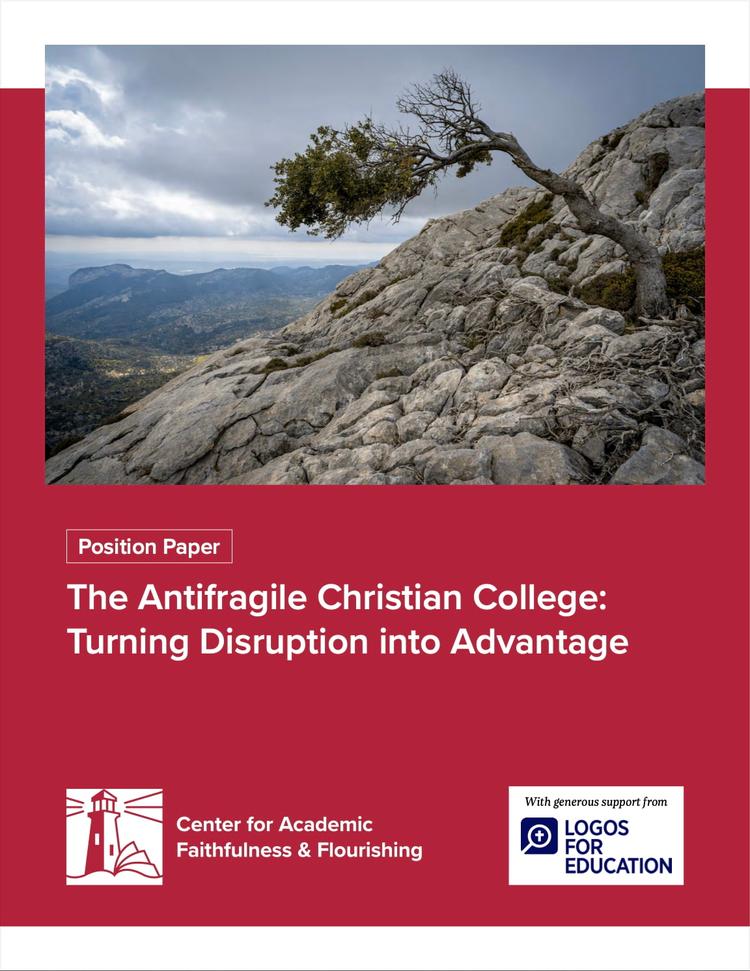
The Antifragile Christian College
In recent years, American economic and social life has undergone widespread disruption and witnessed a corresponding loss of trust in institutions. In particular, three trends in the macro environment—global disruption, bureaucratic stagnation, and cultural and political alienation—threaten to upend the systems and structures upon which American higher education currently depends. This position paper reviews these trends and explains how together they are likely to produce both elevated levels of concentrated risk for universities and decreased trust in postsecondary credentialers. It concludes by exploring the implications of this foreboding reality and elucidating two divergent futures for Christian higher education: submitting to the legacy academic status hierarchy and accepting a suboptimal position, or gaining independence from these negative trends by forking away from the existing system and cultivating institutional antifragility.
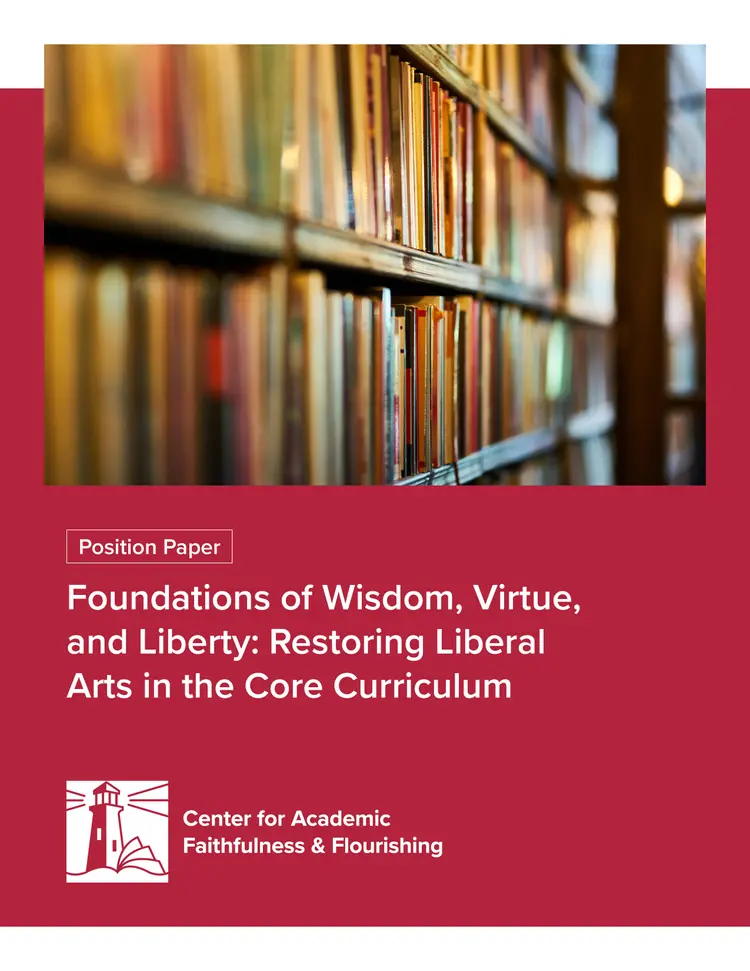
Foundations of Wisdom, Virtue, and Liberty
Restoring Liberal Arts in the Core Curriculum
Increasing declines in public confidence and student enrollment suggest that prevalent approaches to undergraduate education have lost much of their currency. These developments present an existential threat to Christian higher education, whose unique mission depends upon successfully delivering a distinctive undergraduate experience rooted in the Christian worldview. In response to these challenges, this position paper argues for a recommitment to academia’s traditional civilization-building mission of cultivating wisdom, virtue, and civic responsibility in students through robust liberal arts education. After tracing historical debates regarding the role and position of the liberal arts in undergraduate curriculum, the author explains why various institutional responses to the current moment have proven inadequate. The paper concludes by exploring strategies for restoring the purpose of Christian higher education, including placing a greater priority on the core curriculum, elevating the position and role of theology in the educational program, replacing training in critique with cultivation of Christian liberty, and reinforcing key distinctions between undergraduate and graduate degree models.

